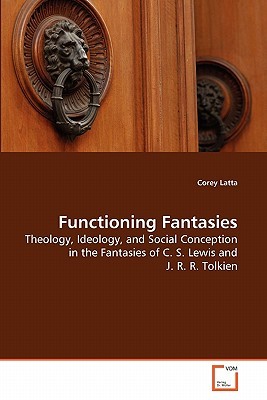
- We will send in 10–14 business days.
- Author: Corey Latta
- Publisher: VDM Verlag
- ISBN-10: 3639215028
- ISBN-13: 9783639215021
- Format: 15.2 x 22.9 x 0.4 cm, minkšti viršeliai
- Language: English
- SAVE -10% with code: EXTRA
Reviews
Description
Functioning Fantasies explores the functionality as well as the ideological underpinnings of C. S. Lewis' The Lion, the Witch and the Wardrobe and J. R. R. Tolkien's The Hobbit. Perhaps more than any other genre of literature, fantasy texts attempt to represent, challenge, and even modify individual and cultural ideologies. As the classic works of Lewis and Tolkien demonstrate, fantasy literature allows for a multidimensionality of personal and social meanings meant to work against and alongside one another. Both C. S. Lewis and J. R. R. Tolkien demonstrate the social and conceptual functions of fantasy literature. Lewis presents a theological fantasy, in which he depicts foundational tenets of Christian doctrine through a fantastic narrative. Tolkien's children's text, The Hobbit, also reflects and recasts aspects of childhood against the backdrop of a specific social context-a post World War I society.
EXTRA 10 % discount with code: EXTRA
The promotion ends in 21d.09:04:09
The discount code is valid when purchasing from 10 €. Discounts do not stack.
- Author: Corey Latta
- Publisher: VDM Verlag
- ISBN-10: 3639215028
- ISBN-13: 9783639215021
- Format: 15.2 x 22.9 x 0.4 cm, minkšti viršeliai
- Language: English English
Functioning Fantasies explores the functionality as well as the ideological underpinnings of C. S. Lewis' The Lion, the Witch and the Wardrobe and J. R. R. Tolkien's The Hobbit. Perhaps more than any other genre of literature, fantasy texts attempt to represent, challenge, and even modify individual and cultural ideologies. As the classic works of Lewis and Tolkien demonstrate, fantasy literature allows for a multidimensionality of personal and social meanings meant to work against and alongside one another. Both C. S. Lewis and J. R. R. Tolkien demonstrate the social and conceptual functions of fantasy literature. Lewis presents a theological fantasy, in which he depicts foundational tenets of Christian doctrine through a fantastic narrative. Tolkien's children's text, The Hobbit, also reflects and recasts aspects of childhood against the backdrop of a specific social context-a post World War I society.


Reviews